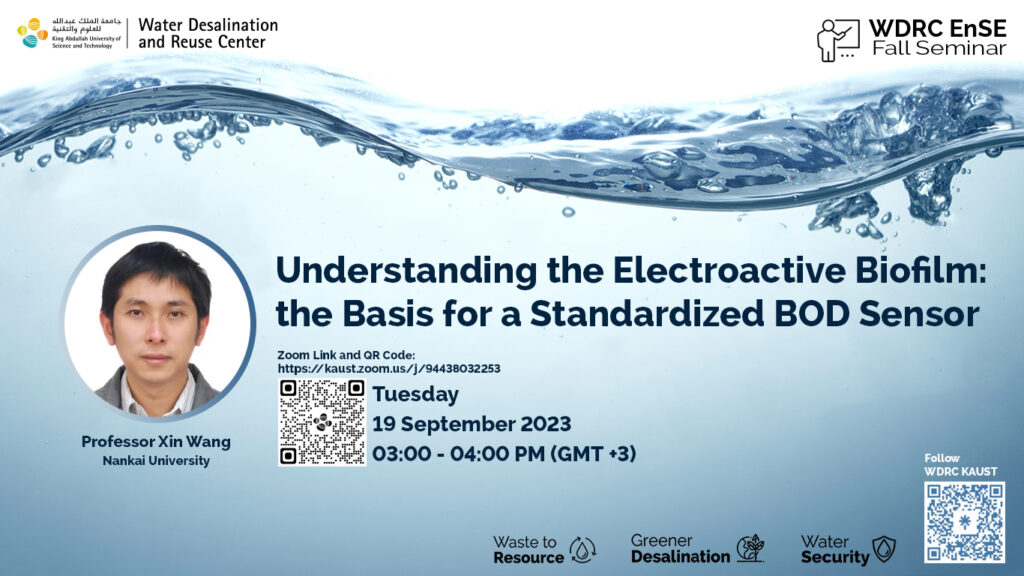
Understanding the electroactive biofilm: the basis for a standardized BOD sensor
By Professor Xin Wang, Nankai University, China
Tuesday, September 19, 2023
3:00 – 4:00 p.m.
On Zoom
Abstract
It is over two decades since the direct extracellular electron transfer of microorganisms was recognized. With these amazing microorganisms, we can produce energy from wastes, desalinate water or synthese valuable chemicals with very limited energy input. After a long-term study on their application, we deeply realized that the understanding of these microorganisms in wastewater are crucial, including who will finally win the competition after long-term succession, what is the spatial microbial distribution in the biofilm and how they response to external electric field. With part of knowledge on these questions, we artificially constructed a highly repeatable and stable electroactive biofilm, and utilized it as the sensing element in a biochemical oxygen demand (BOD) sensor. We also invented new biosensors to measure BOD in aerobic environment by the switchover of electrotrophic and heterotrophic respiration of bacteria.
About the speaker
Dr. Xin Wang is a full professor at Nankai University (China), a Fellow of the Royal Society of Chemistry, and vice dean of the College of Environmental Science and Engineering. He leads a “Microbial Electro+” research team that mainly focuses on the research of bioenergy/resource recovery from wastes and bioelectrochemical water quality sensors. He received his BE (2004) and Ph.D. (2010) from the Harbin Institute of Technology. During his study, he went to The Pennsylvania State University as a jointly training doctoral student (2008-2009) in the laboratory of Prof. Bruce Logan. Dr. Wang joined Nankai University in 2010. He has published more than 150 papers with more than 10000 times of citations, and 28 patents were authorized. He received awards, including the Second prize in natural science of MOE (2023), Gold Prize for Young Scientists of China (2022), Scopus Young Science Star (2013), etc.

